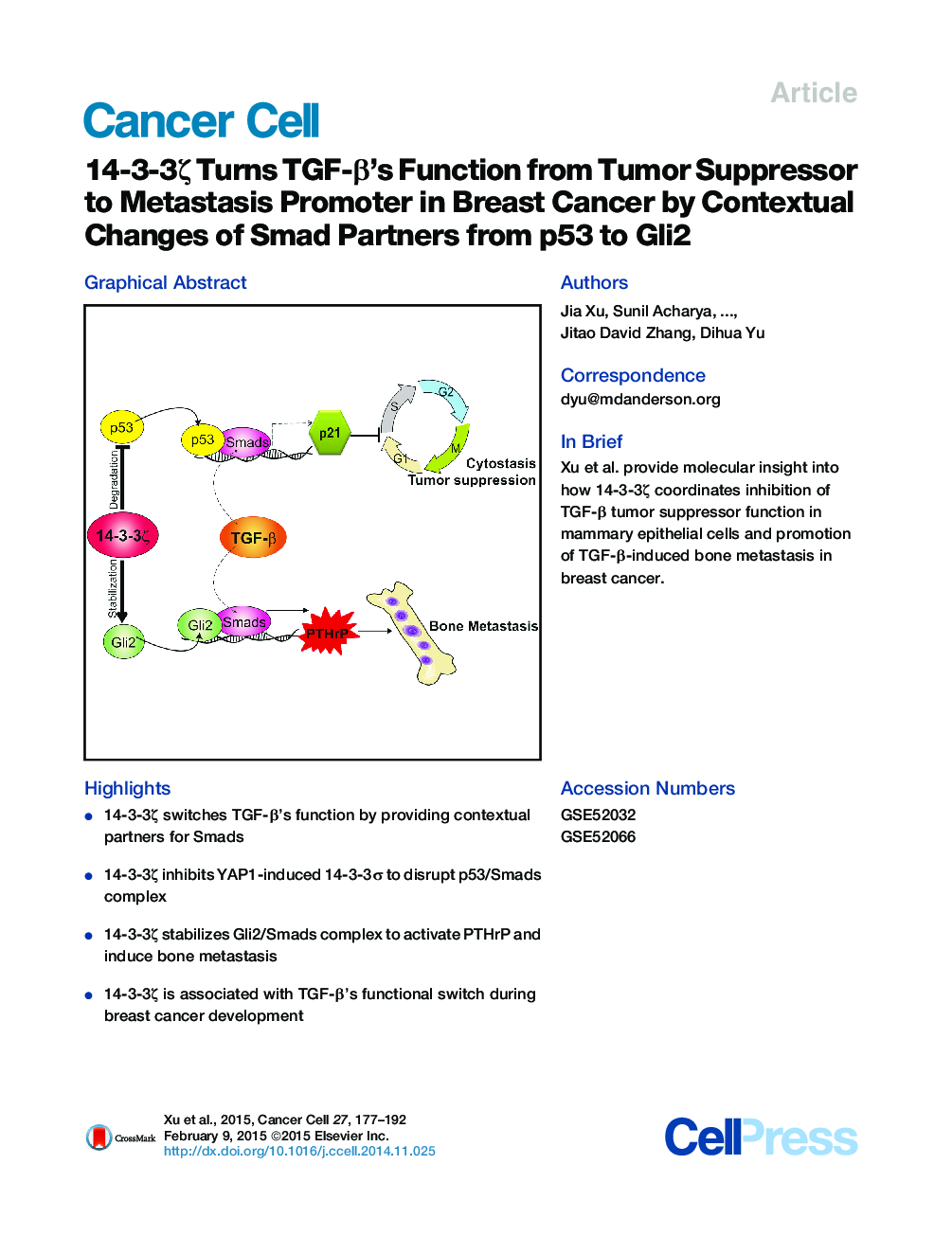| Article ID | Journal | Published Year | Pages | File Type |
|---|---|---|---|---|
| 2106794 | Cancer Cell | 2015 | 16 Pages |
•14-3-3ζ switches TGF-β’s function by providing contextual partners for Smads•14-3-3ζ inhibits YAP1-induced 14-3-3σ to disrupt p53/Smads complex•14-3-3ζ stabilizes Gli2/Smads complex to activate PTHrP and induce bone metastasis•14-3-3ζ is associated with TGF-β’s functional switch during breast cancer development
SummaryTransforming growth factor β (TGF-β) functions as a tumor suppressor in premalignant cells but as a metastasis promoter in cancer cells. The dichotomous functions of TGF-β are proposed to be dictated by different partners of its downstream effector Smads. However, the mechanism for the contextual changes of Smad partners remained undefined. Here, we demonstrate that 14-3-3ζ destabilizes p53, a Smad partner in premalignant mammary epithelial cells, by downregulating 14-3-3σ, thus turning off TGF-β’s tumor suppression function. Conversely, 14-3-3ζ stabilizes Gli2 in breast cancer cells, and Gli2 partners with Smads to activate PTHrP and promote TGF-β-induced bone metastasis. The 14-3-3ζ-driven contextual changes of Smad partners from p53 to Gli2 may serve as biomarkers and therapeutic targets of TGF-β-mediated cancer progression.
Graphical AbstractFigure optionsDownload full-size imageDownload high-quality image (281 K)Download as PowerPoint slide
